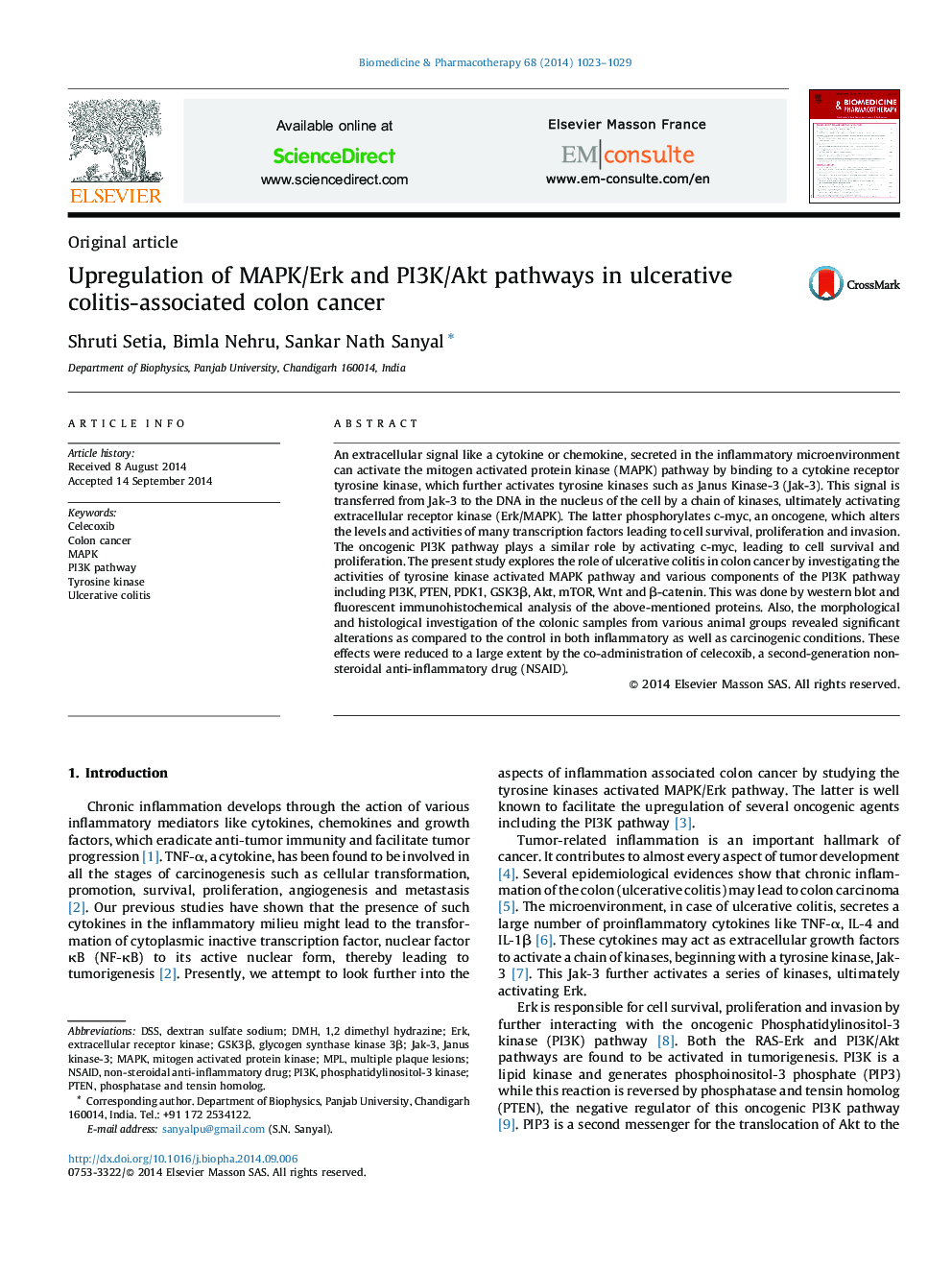| Article ID | Journal | Published Year | Pages | File Type |
|---|---|---|---|---|
| 2524262 | Biomedicine & Pharmacotherapy | 2014 | 7 Pages |
An extracellular signal like a cytokine or chemokine, secreted in the inflammatory microenvironment can activate the mitogen activated protein kinase (MAPK) pathway by binding to a cytokine receptor tyrosine kinase, which further activates tyrosine kinases such as Janus Kinase-3 (Jak-3). This signal is transferred from Jak-3 to the DNA in the nucleus of the cell by a chain of kinases, ultimately activating extracellular receptor kinase (Erk/MAPK). The latter phosphorylates c-myc, an oncogene, which alters the levels and activities of many transcription factors leading to cell survival, proliferation and invasion. The oncogenic PI3K pathway plays a similar role by activating c-myc, leading to cell survival and proliferation. The present study explores the role of ulcerative colitis in colon cancer by investigating the activities of tyrosine kinase activated MAPK pathway and various components of the PI3K pathway including PI3K, PTEN, PDK1, GSK3β, Akt, mTOR, Wnt and β-catenin. This was done by western blot and fluorescent immunohistochemical analysis of the above-mentioned proteins. Also, the morphological and histological investigation of the colonic samples from various animal groups revealed significant alterations as compared to the control in both inflammatory as well as carcinogenic conditions. These effects were reduced to a large extent by the co-administration of celecoxib, a second-generation non-steroidal anti-inflammatory drug (NSAID).
